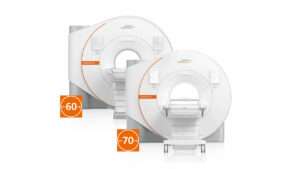By Beatriz Marie D. Cruz, Reporter
SIEMENS Healthineers, a Germany-based medical technology company, is looking to install more helium-free magnetic resonance imaging (MRI) devices to underserved hospitals in the Philippines next year.
“Looking ahead, additional installations of MRI systems powered with DryCool virtually helium-free technology are currently underway, with more planned through 2026,” Michael Schmermer, president and managing director of Siemens Healthineers in the Philippines, said in an e-mail.
The company is planning to roll out helium-free MRI systems in select provinces in Northern Luzon, Visayas, and Mindanao, he said.
“Several installations are in the pipeline, particularly in regions where access to advanced imaging remains limited due to geographic and infrastructural challenges,” Mr. Schmermer said.
The MAGNETOM Flow. Platform, the first helium-free MRI technology in the Philippines, uses artificial intelligence to provide enhanced diagnostic imaging in a shorter amount of time.
It is also powered by Siemens’ DryCool technology, reducing its dependence on helium, an increasingly scarce and costly natural source.
“The country’s archipelagic geography adds complexity to healthcare delivery, especially in transporting and maintaining conventional MRI systems that rely on helium and a stable power supply,” Mr. Schmermer said.
MAGNETOM Flow technologies are also designed with compact footprints and quench pipe-free architecture, helping simplify installation logistics and infrastructure requirements, he added.
Since last year, about 10 virtually helium-free MRI systems have been deployed in hospitals across the country.
The MAGNETOM Free.Star systems have been installed in hospitals in Benguet, Batanes, Aklan, and Davao del Norte, while the MAGNETOM Flow 1.5T (Tesla) are operational in hospitals in Mandaluyong and General Santos City.
Access to advanced imaging technologies like MRI remains a challenge in the Philippines, Mr. Schmermer said, citing high costs and infrastructure limitations, especially in many rural and remote areas underserved.
“With compact designs, reduced infrastructure requirements, and resilience to power interruptions, our systems are well-suited for healthcare facilities in geographically isolated and resource-constrained settings,” he said.
Pricing for Siemens Healthineers’ helium-free MRI systems vary depending on specific clinical and technological configurations, and site requirements, among others.
The rise of chronic illnesses such as cancer, neurological disorders, and cardiovascular diseases is also driving demand for advanced diagnostic imaging, Mr. Schmermer added.
Noncommunicable diseases like ischemic heart disease, neoplasms, and cerebrovascular disease, are the top causes of death among Filipinos last year, data from the Philippine Statistics Authority showed. This highlights the growing demand for accessible and reliable diagnostic tools in the country, Mr. Schmermer said.
“By enabling earlier diagnosis and improving patient outcomes, these efforts contribute to a more inclusive and equitable healthcare system,” he added.

